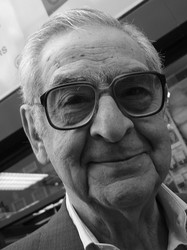
Dennis Norden once said, “Versatility is the key to success”. Despite the fact that I made this up – Norden has never, to my knowledge, said that – he still makes a good point, and nowhere is it more profound than in music. The artists that demonstrate the ability to switch between different styles, emotions, personas and sounds are, more often than not, the ones that are the most captivating. David Bowie, Captain Beefheart, Michael Jackson and Ween are all good examples of acts that have consistently chopped and changed the way they sound, although the real benchmark for musical versatility was undoubtedly set by The Yin Yang Twins, who have written lyrics about both strippers AND pole-dancers.
In this post, I will be examining two very different artists who I think display the greatest breadth in terms of emotional and sonic variety: Sizzla Kalonji – the turban-toting, Babylon-scorning Bobo Ashanti figurehead – and Nico – the sad-eyed, flaxen-haired friend of the Velvet Underground.
SIZZLA

Anyone who knows anything about reggae (if you bought beads in Thailand before beginning your BA in Social Anthropology at Sussex, I'm talking to you) knows that the genre is split roughly into two categories. On one side, there's the peaceful, melodic roots music championed by Bob Marley, Johnny Clarke, The Mighty Diamonds, Cornel Campbell et al. The guys on this side are primarily concerned with spreading love, praising Jah, staying away from barber shops and promoting marijuana. On the other, there's the furious, bass-driven bastard child of the Sleng-Teng Riddim: dancehall. The stars of this movement (Ninjaman, Bounty Killer, Cutty Ranks etc) concentrate their worries around the destruction of Babylon, the destruction of chi-chi men, the destruction of rival MCs, destruction in general and promoting marijuana. While you could certainly argue that there is a need for a third, slightly smaller, category to encapsulate the deejay stylings (and marijuana promotion) of U Roy, I Roy, Roy Hattersley and all the other Roys that many would claim helped give birth to rap music, generally speaking, reggae can usually be split into two very simple sections: violent and non-violent.
There are very few artists who can produce songs that fit neatly into both these categories and Sizzla is by far the best of them. On tracks like 'Be Strong' and 'Just One Of Those Days', his voice fluctuates between broken falsetto and sweet, heavy sorrow; his lyrics carry concious messages of warning and love. On 'Clean Up Your Heart', he pleads, “Be not hypocrite amongst yourselves, African daughters and sons”, and on 'Thank You Mama' he marvels at his own mother's bravery, claiming “no-one knows the pressure you bear, just only you”.
These songs are so brilliant; so raw and sad and spiritual that you can hardly believe it is the same person when you hear Sizzla over a dancehall riddim. Any trace of love or beauty is pushed swiftly aside as his voice becomes almost incomprehensible; a guttural, hate-fuelled growl. Similarly, the positive, concious thoughts expressed on tunes like 'Where Are You Running To' and 'Thank You Mama' make way for the kind of mindless violence that would make Ice Cube blush. On 'To The Point', Kalonji talks of chopping Pope Paul's head off and “bunning out” Queen Elizabeth in the same verse. This is the same person who, on 'Be Strong', expresses hope that his friend is “behaving himself like a good-behaving citizen”; this is hypocrisy at its most ridiculous, but it sounds fucking incredible. While the signals that Sizzla is sending out on these, his more rowdy tracks, are almost comical in their vicious negativity, they are consistently compelling; when he you hear him promise, on 'Ready Fi Di Road', to “buss up them head and kick them with me Clark's Wallabys”, it is almost impossible to resist a gun finger, even on public transport.
So, despite his hypocrisy, homophobia, and burning desire to “bun” old Lizzie the Second, Sizzla is by far and away the most versatile (and, in my humble opinion, best) reggae artist ever. There is, I think, only one other performer who matches his musical breadth and variety and that is the Chelsea Girl herself: Nico.
NICO

Nico's versatility is easily demonstrated using just two albums: 'Chelsea Girl' and 'The End'. These albums are, without wanting to sound at all melodramatic, literally like listening to life and death recorded and spread over 10 and 8 tracks respectively. 'Chelsea Girl' is - despite what 'Winter Song' might lead you to believe - an album that sounds like Spring; breezy acoustic guitars flutter in and out of lazy violins, while Nico's voice – fresh and alert – wanders wide-eyed through the strings taking everything in. While there is constantly a darker side present throughout the record (on 'These Days' she claims, “I had a lover/I don't think I risk another these days”), both her vocal tone and her musical backing are never anything but happy, innocent and pure.
'The End' is a different matter altogether. While 'Winter Song' may have warned us against judging a book by its cover, both the title of this album and the Nico we see on the front of the sleeve (moody with black hair rather than moody and blonde on 'Chelsea...') hint correctly that the new-born feeling present throughout 'Chelsea Girl' may not be making an appearance here at all. This album sounds like the end of the world; the cheerful guitars and violins replaced by ghostly organs, skeletal percussion and even - on 'Innocent and Vain' - screaming feedback. Nico's voice, so wondrous and curious on 'Chelsea Girl', seems now to rise out of a chasm; cold, metallic and alien. The difference is astounding.
So, there you have it. Two artists: one fluent in both love and hate, the other capable of capturing both life and death. Surely, with the obvious exception of the Yin Yangs, you cannot get more versatile than this?
Thomas FB Troubledoubledoubledouble.

No comments:
Post a Comment